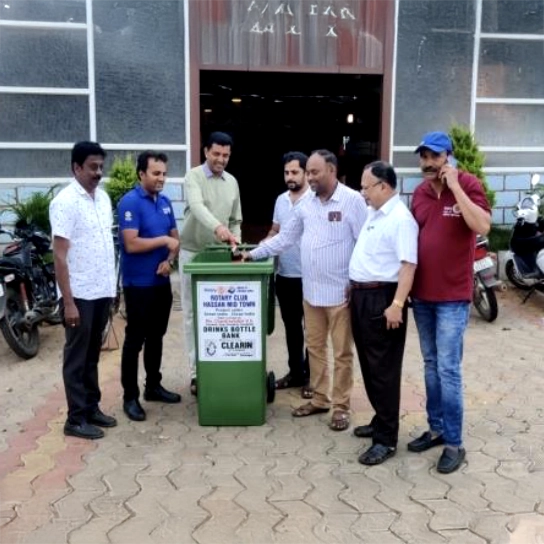In India’s growing digital economy, e-waste is one of the fastest-growing waste streams, yet systems for its safe collection and disposal remain fragmented—especially in Tier-2 cities. Recognizing this critical gap, Chandrashekar H S has taken a bold step forward in Hassan, Karnataka, through his involvement in Project AriEwu.

In India’s growing digital economy, e-waste is one of the fastest-growing waste streams, yet systems for its safe collection and disposal remain fragmented—especially in Tier-2 cities. Recognizing this critical gap, Chandrashekar H S has taken a bold step forward in Hassan, Karnataka, through his involvement in Project AriEwu.
Launched in April 2024, Project AriEwu (which means “knowledge” in Kannada) is an initiative aimed at creating awareness and facilitating responsible e-waste collection across Karnataka. Chandrashekar’s work in Hassan is a shining example of how local action can contribute to solving a global issue.
In a region with limited formal systems for managing electronic waste, Chandrashekar has established a dedicated e-waste collection center. This center has quickly become a vital link in the region’s sustainability efforts, collecting between 1 to 1.5 metric tons of e-waste each month. His approach not only addresses infrastructure limitations but also encourages communities to shift toward environmentally responsible habits.
What sets Chandrashekar’s model apart is its low-carbon, community-first approach. He uses electric three-wheelers to travel to identified collection points two to three times a month. These visits are not ad hoc—they’re well-planned and consistent, fostering trust and encouraging regular participation from the public and institutions alike.
His efforts are amplified through collaboration with educational institutions and Urban Local Bodies (ULBs). By engaging with students, teachers, and civic bodies, he drives long-term behavioral change, transforming awareness into action.
Since its inception, Project AriEwu has expanded its footprint to 15 districts across Karnataka, combining grassroots outreach with real-world solutions. The initiative stands as a testament to what’s possible when knowledge, commitment, and community come together to tackle environmental challenges.
Chandrashekar’s work is not just about collecting waste—it’s about setting a precedent, inspiring others, and building a sustainable future, one circuit board at a time.